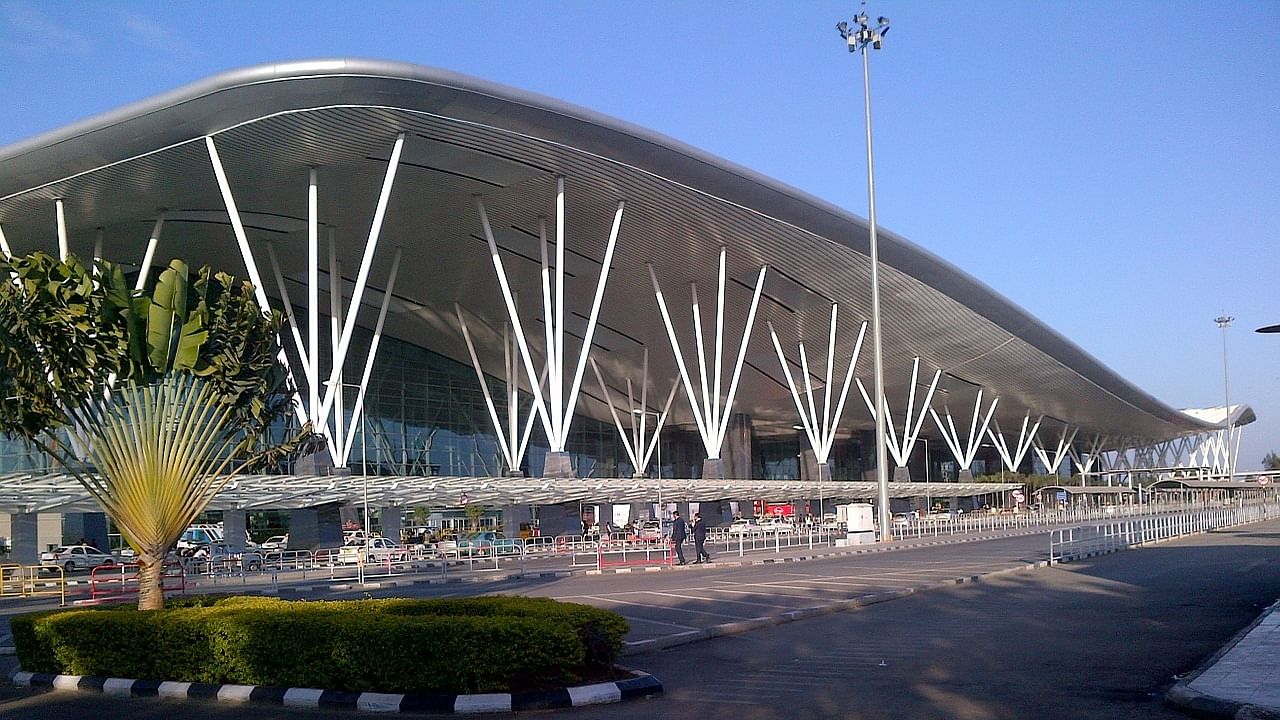
As many as 2,166 international travellers from nine ‘at-risk’ countries were tested for Covid since October 25 at the Bengaluru International Airport. Fortunately, none have tested positive so far.
The nine at-risk countries include, South Africa, Botswana and Hong Kong, where the new heavily mutated Covid variant B.1.1.529 cases have been found. Six other countries include the United Kingdom and other European countries, Brazil, Bangladesh, China, Mauritius, New Zealand and Zimbabwe.
But a spokesperson from the Bangalore International Airport Limited (BIAL) confirmed that there are no flights originating from the three countries where the new Covid variant has been found.
“We have no direct flights originating from South Africa, Botswana and Hong Kong, landing in Bengaluru. We also don’t have any flights that have a layover in these three countries. But we don’t have data of transit passengers,” a BIAL spokesperson said. The Mangalore International Airport has flights depart daily only for major cities in the
Middle East.
State Health Secretary T K Anil Kumar told DH, “We’ve sent this circular to all the districts, so all of them have to take action on that. We’re not aware if there are any sea vessels arriving by sea from these countries at our ports (Mangaluru/Karwar). But since instructions have been issued, the respective district health officers of Dakshina Kannada, Uttara Kannada and Udupi districts have to take measures to test passengers, if any.”
On Friday, Kumar issued a circular saying all international travellers, even transiting through Botswana, South Africa and Hong Kong, should be subjected to rigorous screening and testing. The contacts of these international travellers should also be closely tracked and tested,
he said.
Samples testing positive for Covid should be sent to designated IGSLs (INSACOG Genome Sequencing Laboratories: NIMHANS, NCBS and IISc) for genome sequencing and these samples should be sequenced on priority at IGSLs.
Member of the State Genomic Surveillance Committee Dr Vishal Rao told DH, “It would take several weeks to determine this new variant’s transmissibility, virulence and effectiveness of vaccines against it. Researchers in the affected countries would have to draw the blood samples of the infected and check if the antigens of the vaccines are working or not. In two weeks, we have had over 100 cases so far in these countries.”
“We need to investigate how effectively the existing diagnostics and therapeutics work against this virus variant. It has 32 mutations in the spike protein alone. Currently, it hasn’t been labelled as a variant of concern like Delta, Gamma, Beta and Alpha have been,” he said.
